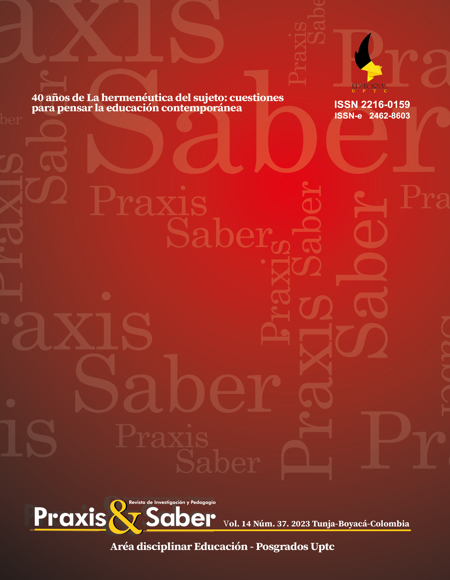The Comenian moment in the history of the relationship between the subject and the truth

Abstract
The article presents a reflection derived from the study of one of the hypotheses that Michel
Foucault proposed on the relationship between the subject and truth in the course
Hermeneutics of the Subject in 1982. There, using Descartes and other outstanding
philosophers in the history of philosophy as sources, Foucault points out that the modern
age corresponds to a Cartesian moment of this relationship since it was a period in which
access to the truth no longer required the ascetic work of the subject and, therefore, did not
imply its transformation. Faced with this hypothesis, the article proposes that, although it is
true that in this period there was a transformation in the subject-truth relationship, the entry
on the scene of the know-how of knowledge (science) did not mean the end of the demands
of transformation of the subject to access the truth. On the contrary, knowledge became a
necessary condition for the (trans)formation of the subject as evidenced in the work of one
of the greatest thinkers of the seventeenth century: John Amos Comenius.
Keywords
subject, truth, Comenius, spirituality, knowledge
References
- Aguirre, M. (2001). Caleidoscopios comenianos II. México: Plaza y Valdés.
- Alzati, F. (1993). Primera aproximación. En J. A. Comenio, El mundo
- Castro-Gómez, S. (2016). Historia de la gubernamentalidad II: filosofía, cristianismo y sexualidad. Bogotá: Siglo del Hombre Editores.
- Comenio, J. (1984). Didáctica Magna. México: Porrúa.
- Comenio, J. (1992). Pampedia. (Educación universal). Madrid: UNED. en imágenes (pp. 7-9). Porrúa.
- Foucault, M. (1986). El uso de los placeres. Historia de la sexualidad II. México: Siglo XXI Editores.
- Foucault, M. (2002). Hermenéutica del sujeto. Buenos Aires: Fondo de Cultura Económica.
- Hadot, P. (1998). ¿Qué es la filosofía antigua? México: Fondo de Cultura Económica.
- Hadot, P. (2006). Ejercicios espirituales y filosofía antigua. Madrid: Siruela.
- Marín-Díaz (2022). El libro como acceso al mundo: entre imágenes y palabras. En Comenio: 350 años después. Bogotá: Universidad Pedagógica Nacional y Embajada república Checa, p. 115-137.
- Miguel, R.; Morante, M. (1867). Nuevo diccionario latín-español etimológico. Leipzig: Imprenta de F. A. Brockhaus.
- Noguera-Ramírez, C.; Marín-Díaz, D. (2020). La educacionalización del mundo. Una mirada genealógica de la modernidad. Cadernos de História da Educação, 19, 2, 360-376. DOI: https://doi.org/10.14393/che-v19n2-2020-6
- Noguera, C. (2011). Pedagogia e governamentalidade ou Da Modernidade como uma sociedade educativa. Belo Horizonte: Autêntica.
- Noguera, C. (2012). El gobierno pedagógico. Del arte de educar a las tradiciones pedagógicas modernas. Bogotá: Siglo del Hombre Editores.
- Noguera, C. (2017). Pampedia y pandemia. En Comenio: 350 años después. Bogotá: Universidad Pedagógica Nacional y Embajada república Checa, p. 217-240.
- Noguera, C. (2017). The pedagogical effect: On Foucault and Sloterdijk, Educational Philoshopy and Theory, 49:7, 720-733. DOI: https://doi.org/10.1080/00131857.2016.1204738
- Noguera, C.; Marín, D. (2015). Training the human animal: biopolitics and anthropotechnics, Revista Sisyphus. Journal of Education, Vol. 3, no. 3, pp. 110-131
- Noguera, C.; Parra, G. (2015). Pedagogización de la sociedad y crisis de la educación. Elementos para una crítica de la(s) crítica(s). En Pedagogía y Saberes, No. 43, pp. 69-78
- Schifferová, V. (2021). Juan Amós Comenio, perfil de un filósofo. Pedagogía y Saberes, 54, 11-123. DOI: https://doi.org/10.17227/pys.num54-13132
- Sloterdijk, P. (2012). Has de cambiar tu vida. Valencia: Pre-Textos.